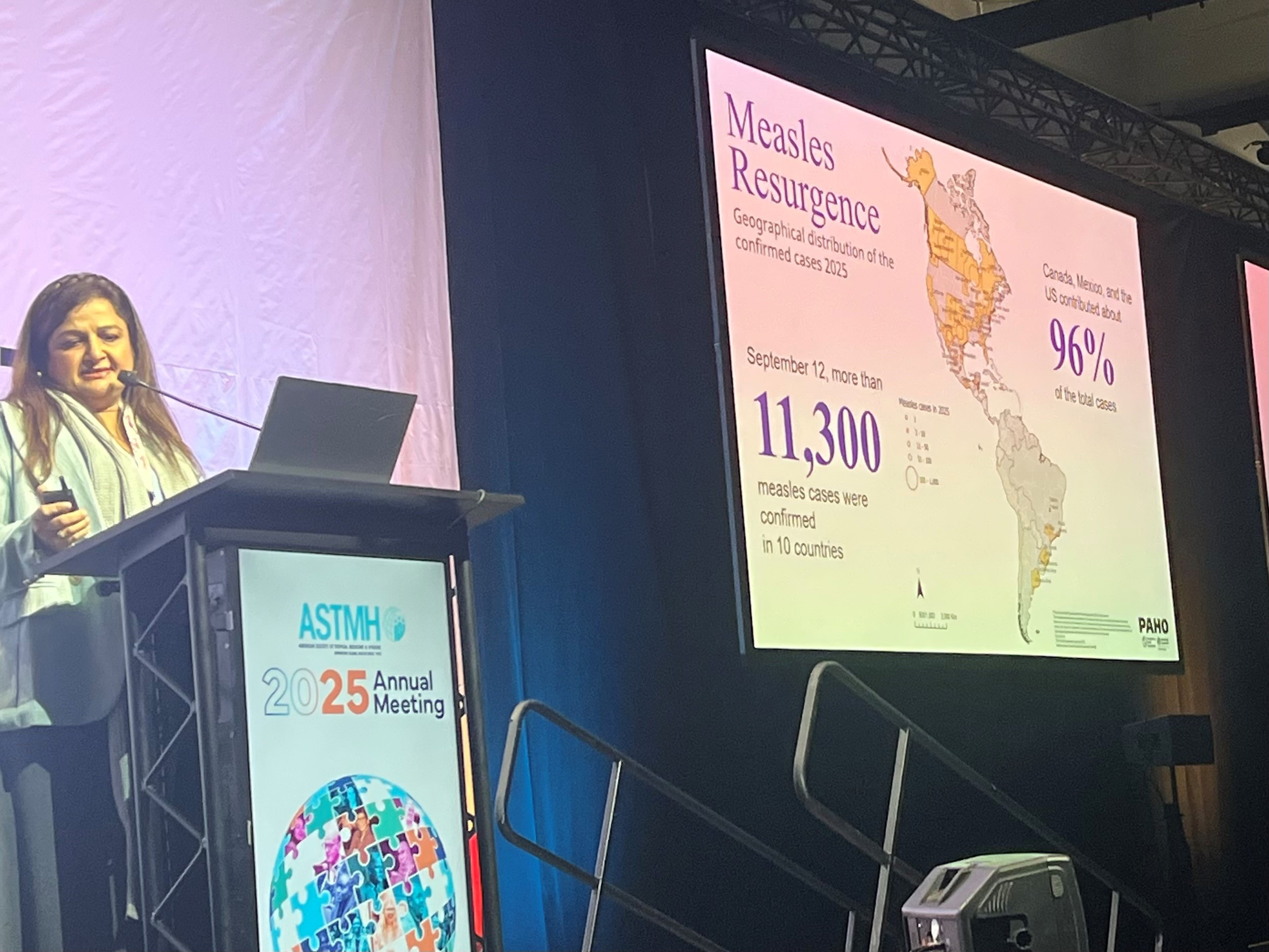ASTMH Annual Meeting 2025
blogProbing Global Measles Resurgence on Day When Canada Loses Measles Elimination Status
By: Matthew Davis, Burness

An anti-vaccine movement that “feeds on community vulnerabilities” along with misconceptions about disease risks and practical problems with vaccine storage are contributing to a resurgence of measles globally—including steadily rising cases in the United States and Canada where the disease had been considered eliminated, said Fyezah Jehan, a professor of pediatrics and infectious diseases at Pakistan’s Aga Khan University.
At a #TropMed25 symposium Monday morning, Jehan discussed contemporary measles challenges just as Canada had lost its hard-won measles elimination status. The notification from the Pan American Health Organization (PAHO) follows a year in which Canadian health authorities have reported some 5,000 cases.
“Most of us have spent years of our lives chasing emerging pathogens, but now we have a pathogen amongst us that is already here and it’s coming back,” she said.
Jehan noted that currently there are measles outbreaks around the world, with South Asia becoming a hot spot, while in the Americas alone, there have been 11,300 cases in 2025—almost all of them in Canada, the U.S. and Mexico.
She pointed to several factors driving the decline in measles vaccinations--also the main reason infections are rising.
“The pervasive problem is the belief that vaccines cause autism,” she said. Jehan noted that up to 10% of parents still link vaccines to autism. She said the “modern anti-vaccine movement has become very systematic and now feeds on community vulnerabilities” through misinformation campaigns that exploit these fears.
Other factors affecting vaccine coverage, she said, include the fact that 20% of adults think getting a measles infection is a better way to gain immunity—even though the vaccine is about 97% effective. Meanwhile, along with severe illness and death, risks from infections include damage to the immune system that can affect existing protections against other pathogens.
But misinformation is not the only challenge to increasing coverage. Jehan said measles vaccines still require constant refrigeration (aka a “cold chain”) that can be difficult to maintain in low-resource settings. There also are “shocks” like armed conflict and sudden changes in governments that can disrupt vaccination campaigns. And in the U.S., several states and localities have made it easier for parents to gain non-medical exemptions from vaccination requirements.
Jehan said rolling back the current measles resurgence will require action on several fronts. For example, she said physicians still enjoy high levels of public trust and can be effective messengers for stressing the safety and effectiveness of vaccines and the dangers posed by infection.
“We know the science, we know the problems, and I know I am preaching to the choir, but I hope we can go out and spread the message to our communities,” she said.
Related Posts
By: Matthew Davis, Burness